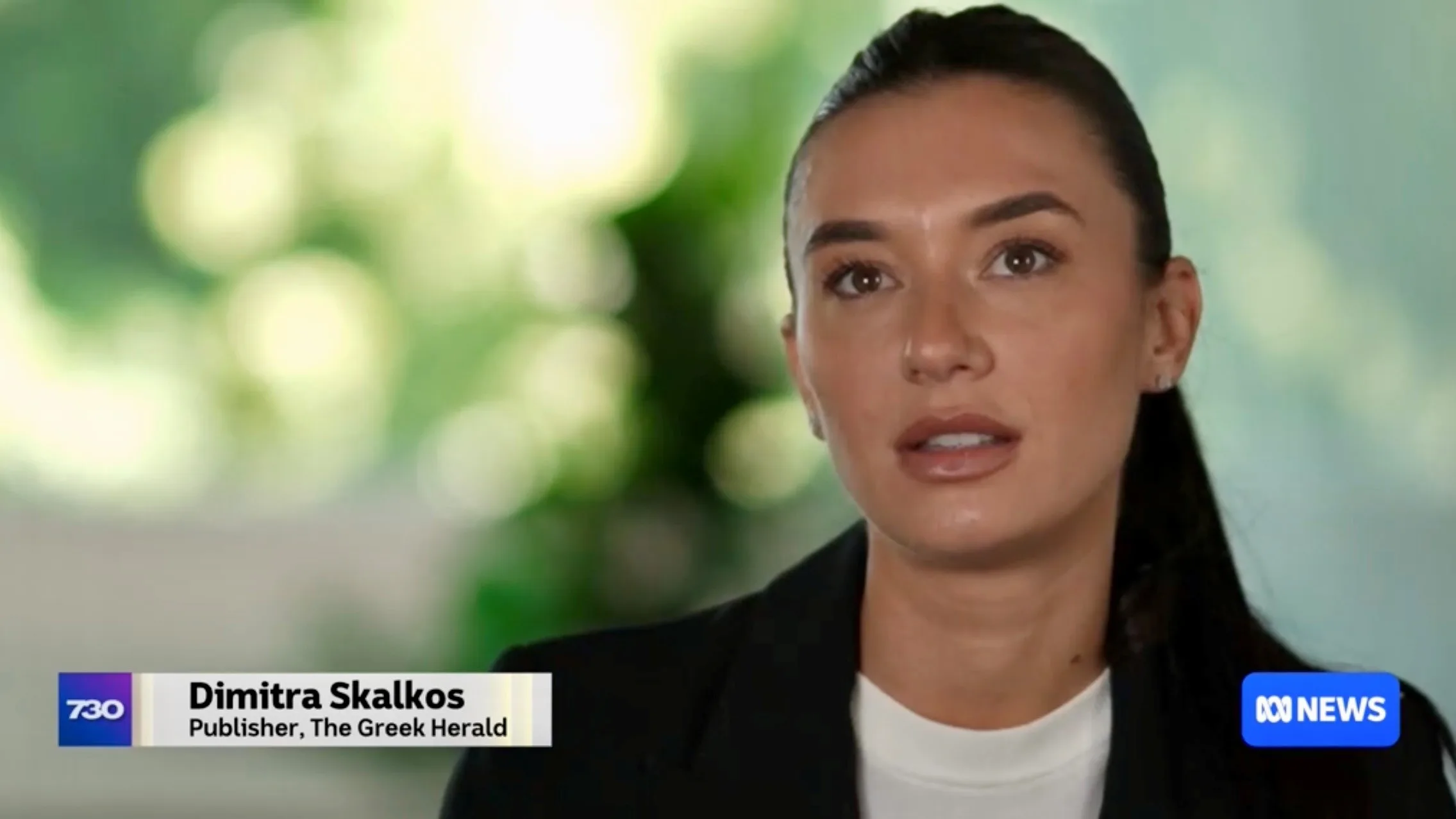The Albanese Government’s proposal to require global tech giants to pay for Australian journalism returned to national focus this week, with ABC’s 7.30 examining the reforms and the growing pressures facing newsrooms across the country.
The program brought together a broad mix of industry voices – including Nine Entertainment CEO Matt Stanton, former ACCC Chair Rod Sims, Assistant Treasurer Daniel Mulino and The Greek Herald publisher Dimitra Skalkos – to assess the impact of Meta and Google ending key funding arrangements.
Ms Skalkos’ participation added a multicultural newsroom perspective to the national policy discussion, reinforcing that the pressures on journalism are being felt across all parts of the industry – not only within the major networks.
As The Greek Herald approaches its 100th year of continuous publication – and remains the only daily Greek newspaper operating outside Greece and Cyprus – the issues raised in the program speak directly to its longstanding mission: delivering trusted journalism in two languages to a deeply engaged national readership.
A century of continuous publishing – and a globally unique role
Founded in 1926, The Greek Herald is among the few Greek-language newspapers worldwide still publishing daily. Its readership spans older migrants who rely on in-language reporting and younger generations seeking cultural context.
“We reach older migrants who need in-language news, and younger generations who want cultural context and nuanced reporting,” Ms Skalkos said.
This dual responsibility – both linguistic and cultural – has shaped The Greek Herald’s identity for decades.
“Our audience is strong and deeply engaged. What’s changed isn’t the demand for our journalism – it’s the financial model that underpins it,” she said.
“We break stories inside communities where culture and trust matter, and that work takes resources. Without stable revenue streams, it becomes harder for any newsroom to plan long-term.”
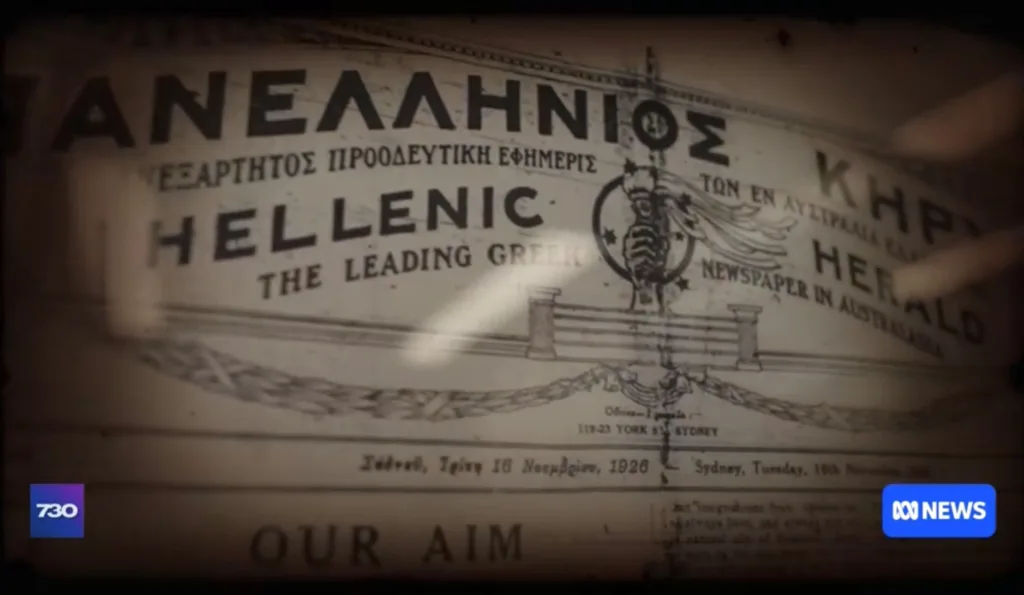
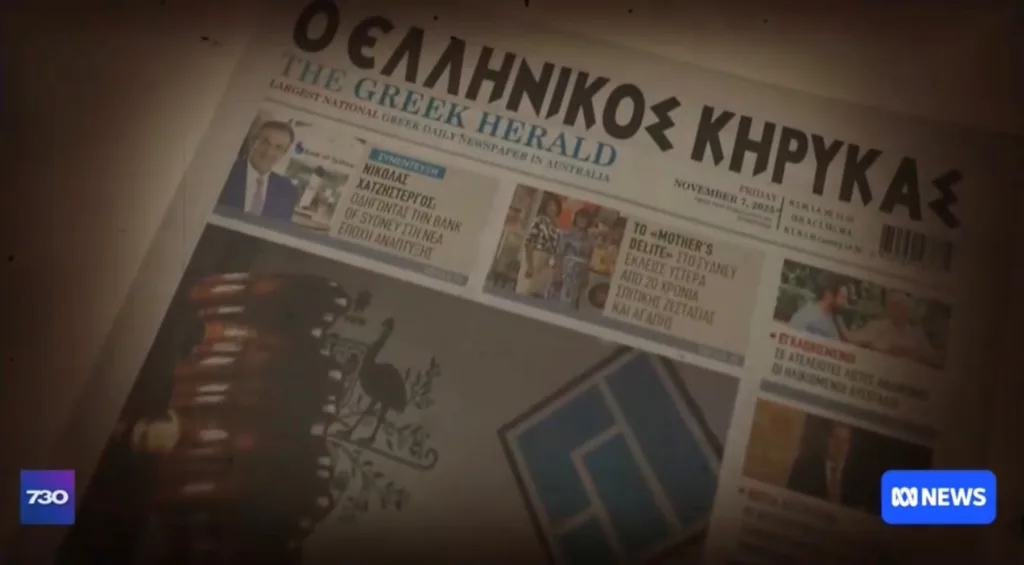
Industry-wide pressures reshaping Australian journalism
The pressures described on 7.30 – including the loss of up to 100 journalists at Nine after Meta withdrew from news agreements – reflect structural changes affecting newsrooms across the sector.
Advertising revenue has contracted, government communication spending is increasingly fragmented, and most digital ad dollars are captured through Google and Meta’s programmatic systems. For a national daily multicultural outlet, these trends have a pronounced impact.
Ms Skalkos said these pressures are systemic.
“The pressures we’re dealing with aren’t unique – they’re systemic. What’s changed is the structure that funds journalism, not the value of the journalism itself,” she said.
The program also highlighted concerns about Artificial Intelligence companies scraping news content without agreements in place, with major publishers reporting extremely high volumes of scraping activity.
Early termination and the instability facing smaller publishers
The 7.30 segment examined the fragility of earlier funding arrangements, noting that one of the agreements involving Google and participating publishers – including The Greek Herald – ended two years ahead of schedule. Ms Skalkos said the early termination had material consequences.
“The agreement was designed to run for five years, and it was pulled in its existing format two years early. It was a shock,” she said. “We had planned digital growth and backend infrastructure around that five-year runway, so an early termination disrupts momentum for any newsroom.”
She said discussions are continuing regarding the unfulfilled final two years.
“Our media alliance, PIPA (Public Interest Publishers Alliance), is in discussions with Google to see whether there can be a positive outcome for those remaining two years of funding. We believe something constructive will come out of that process, but right now the discussions are ongoing, so it’s not clear yet,” she said.
Ms Skalkos also acknowledged the organisations that helped secure access for multicultural and independent outlets.
“We are incredibly grateful to PIPA and the Minderoo Foundation. Their advocacy ensured we weren’t excluded when the original agreements were first secured,” she said.
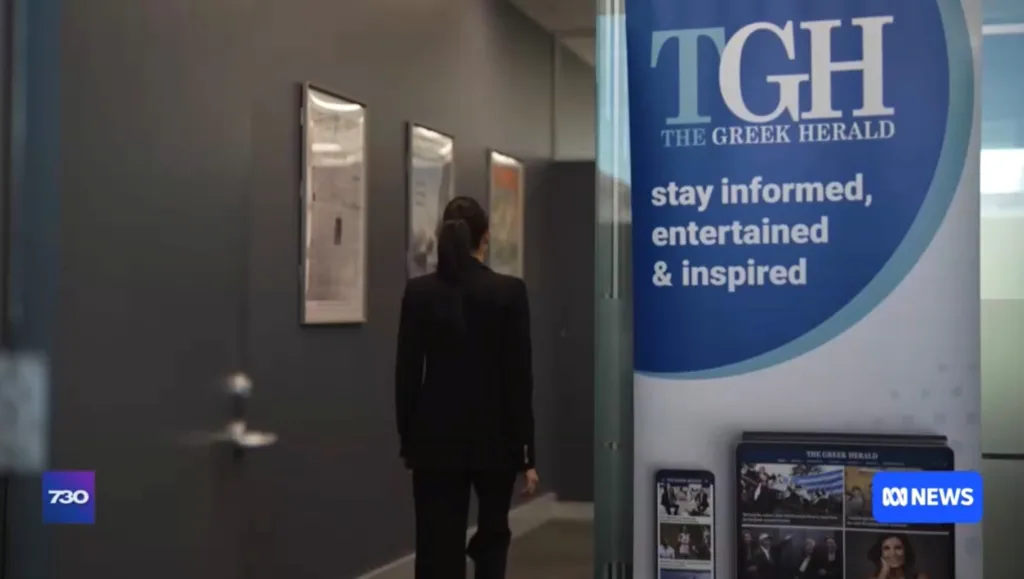
What the News Bargaining Incentive actually proposes
Ms Skalkos said the Government’s proposed reform is a constructive step toward creating greater stability for small and multicultural publishers.
The News Bargaining Incentive would require global tech companies earning more than $250 million in Australia to either enter funding arrangements with local publishers or face a levy tied to their Australian revenue. The goal is to encourage longer-term, more reliable partnerships, rather than the voluntary model that previously allowed platforms to withdraw without consequence.
On 7.30, Assistant Treasurer Mr Mulino described the reform as essential to safeguarding democratic accountability, while Mr Sims said that without a mechanism like this, platforms would continue using news content without payment.
Meta and Google declined interviews but confirmed they will review the proposal.
The program also noted the broader international backdrop, including recent comments from US President Donald Trump cautioning countries against imposing new financial obligations on American tech companies. The Australian Government has downplayed any direct conflict, but the context adds weight to the reform effort.
Ensuring the reforms support diverse newsrooms
Ms Skalkos noted that the effectiveness of the reform depends on whether it delivers certainty across the sector.
“If this reform is going to work, it has to ensure access across the full spectrum of publishers – metropolitan, regional, independent and multicultural,” she said.
“Because if you lose us, you don’t just lose diversity – you lose visibility into whole communities across Australia. And that’s how information deserts form.”
Multicultural outlets like The Greek Herald regularly report on governance, community institutions and cultural developments that may otherwise receive limited coverage, forming a crucial layer of Australia’s public-interest news ecosystem.
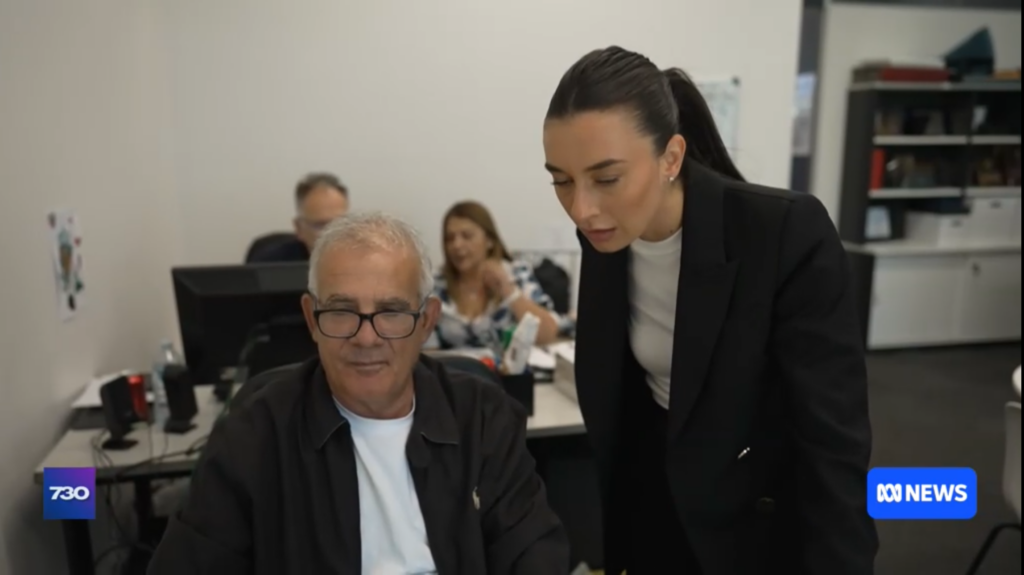
A century of service
As The Greek Herald approaches its centenary in 2026, Ms Skalkos said its purpose remains consistent: to inform, scrutinise and serve its community with integrity.
“We’ve been here for 100 years, and our commitment hasn’t changed,” she said. “Our community expects reliable journalism, and we will continue delivering it.”
She said the reforms present an opportunity to strengthen the health of the wider media ecosystem.
“This is a moment to build a system that recognises the full breadth of Australian journalism,” Ms Skalkos said. “When every publisher – large, regional, independent and multicultural – has access to stable frameworks, the public is better informed. That’s the outcome that matters.”
As the policy process continues, The Greek Herald will remain actively engaged.
“We’re watching with interest to see how the final model takes shape,” Ms Skalkos said. “What matters most is ensuring a fair and lasting structure that supports public-interest journalism across the country.”
